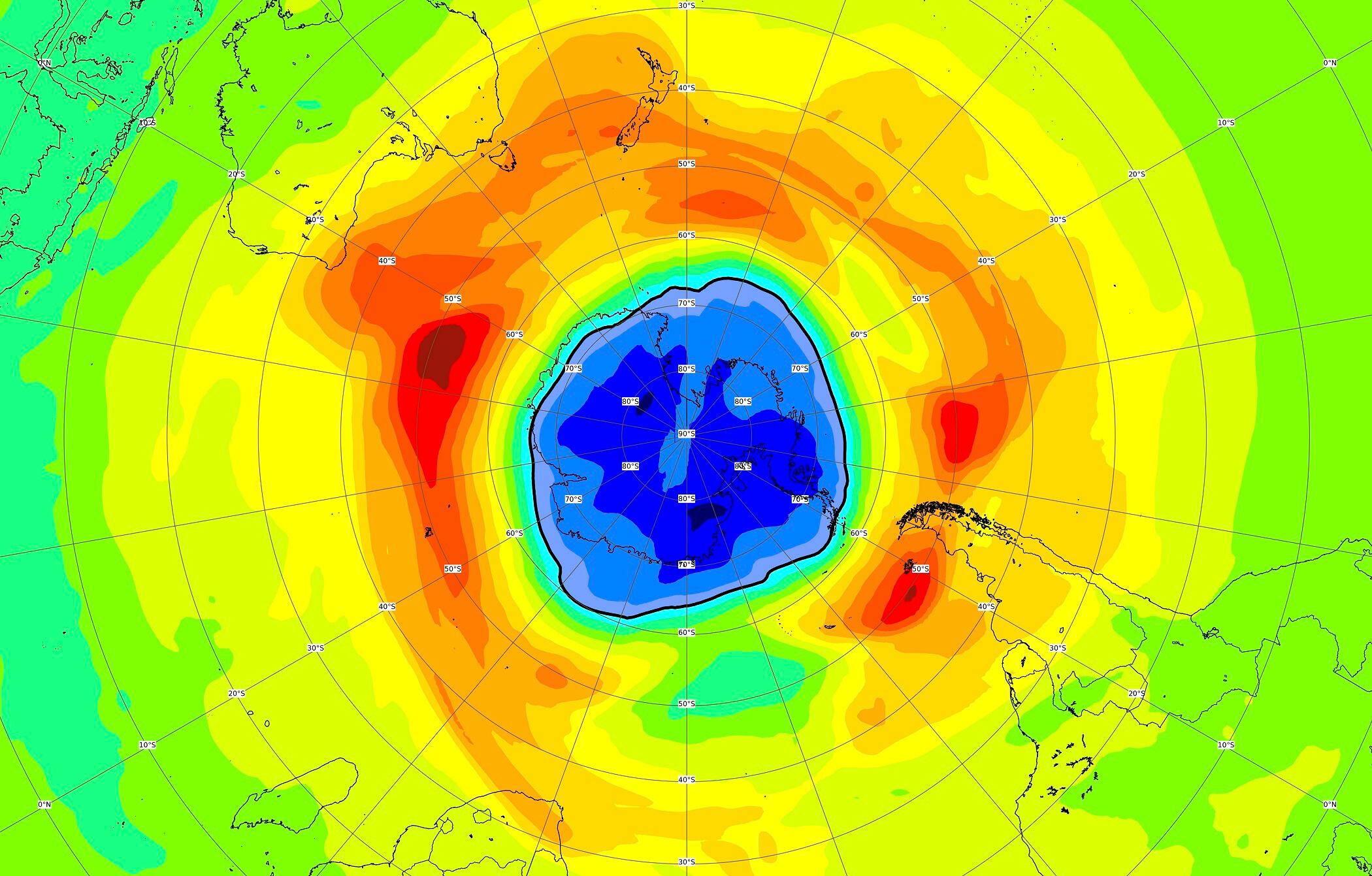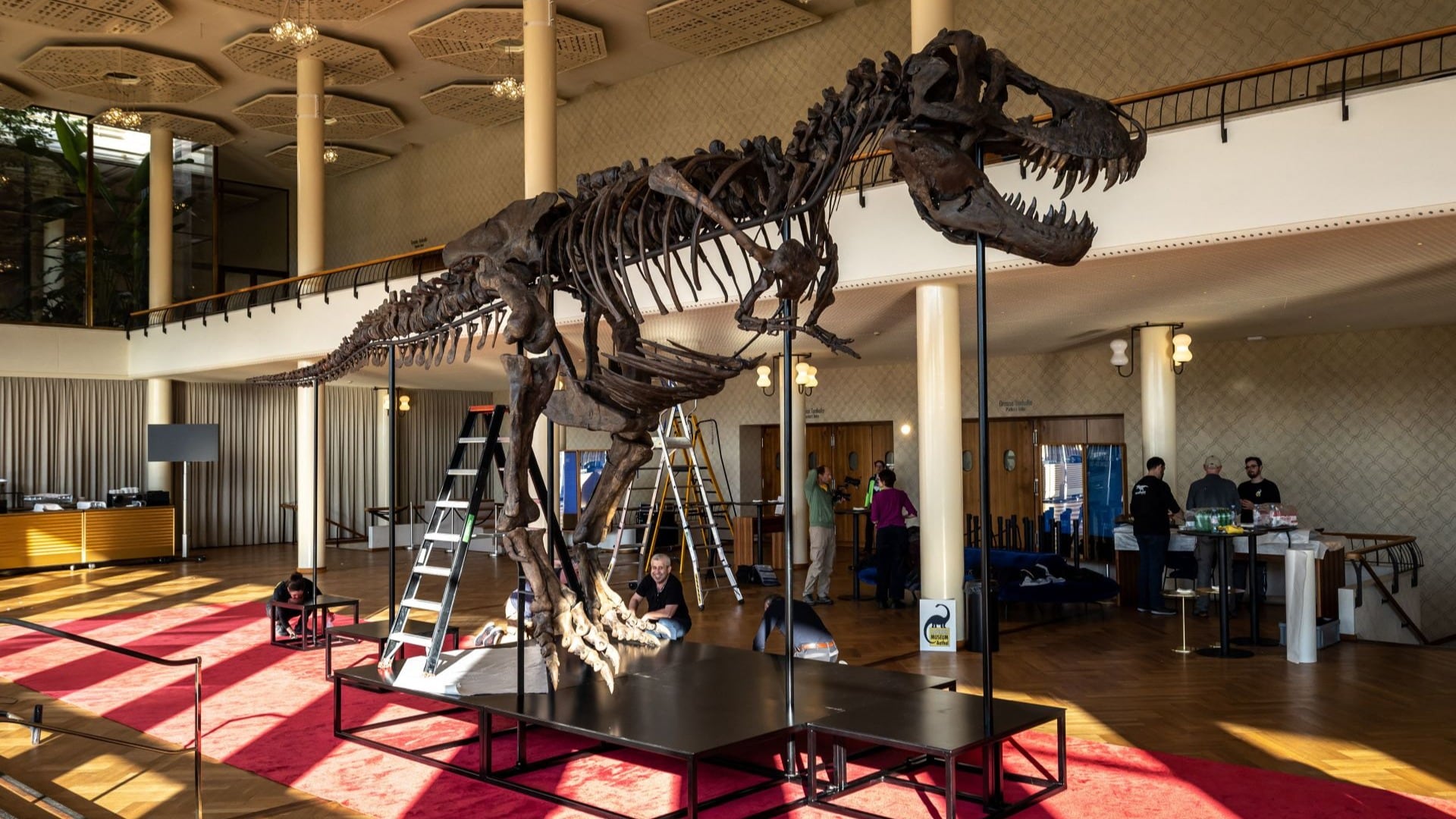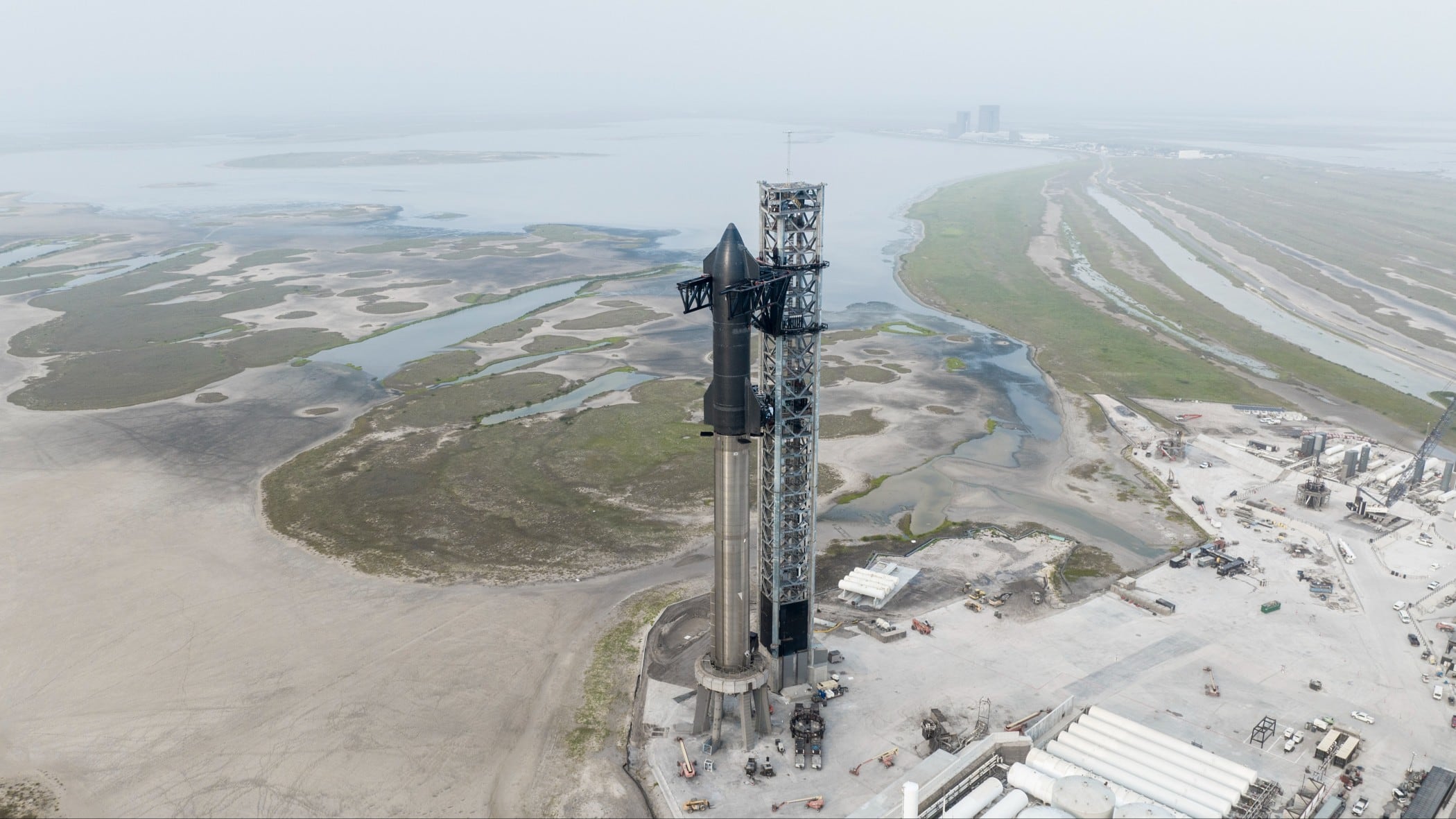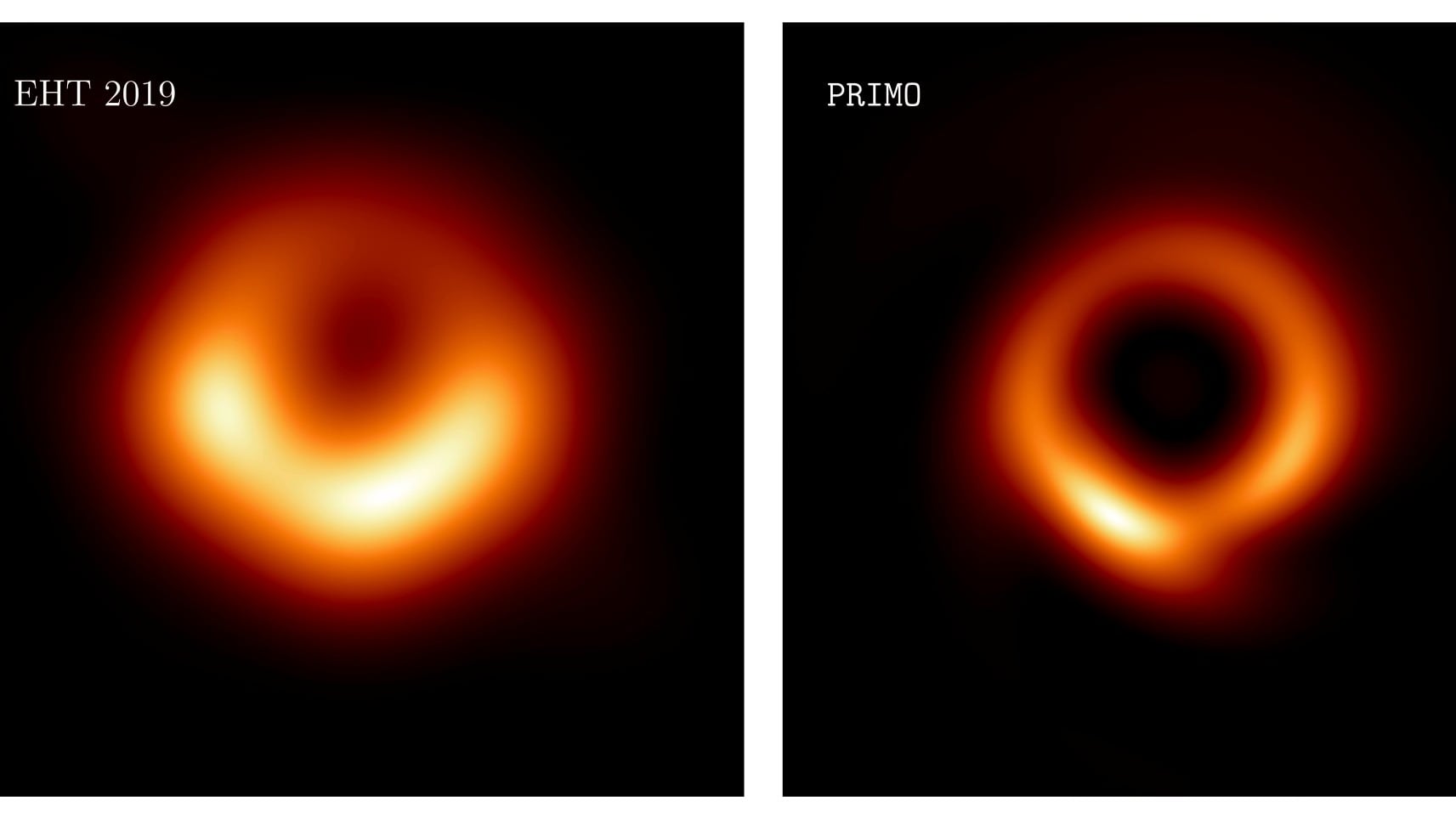Scientists say the hole in the Earth’s protective ozone layer over the Southern Hemisphere is larger than usual this year and already surpasses the size of Antarctica.
The European Union’s Copernicus Atmosphere Monitoring Service said Thursday that the so-called ozone hole, which appears every year during the Southern Hemisphere spring, has grown considerably in the past week following an average start.
“Forecasts show that this year´s hole has evolved into a rather larger than usual one,” said Vincent-Henri Peuch, who heads the EU's satellite monitoring service.
“We are looking at a quite big and potentially also deep ozone hole,” he said.
Atmospheric ozone absorbs ultraviolet light coming from the sun. Its absence means more of this high-energy radiation reaches the Earth, where it can harm living cells.
Peuch noted that last year's ozone hole also started out unremarkably but then turned into one of the longest-lasting ones on record.
The Montreal Protocol, signed in 1987, led to a ban on a group of chemicals called halocarbons that were blamed for exacerbating the annual ozone hole.
Experts say that while the ozone layer is beginning to recover, it's likely to take until the 2060s for the ozone-depleting substances used in refrigerants and spray cans to completely disappear from the atmosphere.
How Incorporating Resistance Bands Can Diversify Workout Sessions
A giant Tyrannosaurus rex skeleton that’s been dug up from three sites in the United States is going up for auction in Zurich. It's a first sale of its kind in Europe.
As the inaugural guest on Cheddar News' new show Be Well, Dr. Sandra Lee, also known as Dr. Pimple Popper, discussed when (and when not) to pop a pimple and how to take care of your skin and keep an eye out for signs of more dangerous issues such as cancer.
Moderna and Merck & Co. have developed a cancer vaccine that cuts the risk of death or recurrence of most deadly skin cancer by 44 percent compared to Keytruda on its own, according to researchers.
The company got the OK on Friday from the Federal Aviation Administration. CEO Elon Musk is giving 50-50 odds of Starship reaching orbit.
Vertical farming startup Babylon Micro-Farms recently raised $8 million in a Serie A round. Alexander Oleson, CEO and co-founder of Babylon Micro-Farms, joined Cheddar News to explain his company's mission to help businesses and communities grow their own fresh produce in a sustainable manner.
A new lab test can detect Parkinson's disease in its early stages.
Cheddar News is highlighting companies with a focus on sustainability for Earth Month. Ashley Allen, chief sustainability officer with Oatly, joined Cheddar News to discuss her company's mission to deliver products that have a minimal environmental impact. "We want to make it easy for people to eat better and live healthier lives without recklessly taxing the planet's resources," she said.
'Plant Kween' Talks Low Maintenance Care for Budding Plant Parents
The first image of a black hole captured in 2019 is getting a makeover. Researchers on Thursday revealed an updated version, which they made using artificial intelligence.













